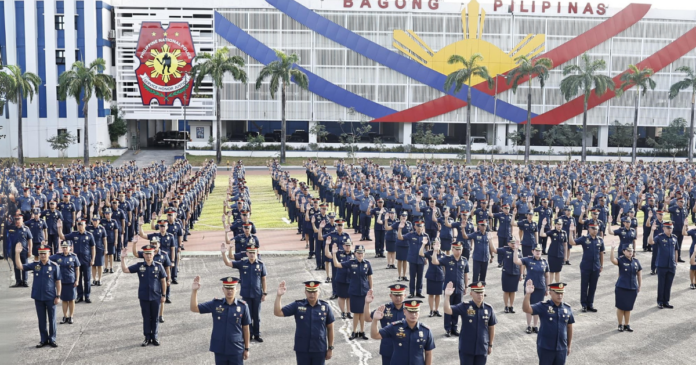In a memorandum released in July 2024, the Philippine National Police (PNP) announced that active-duty police and military personnel are now exempted from undergoing drug tests and psychological evaluations when applying for or renewing their License to Own and Possess Firearms (LTOPF).
Signed by PNP Chief General Rommel Marbil, this policy change has sparked questions about its implications for public safety, accountability, and fairness in the licensing process.
The memorandum clarifies that active members of the PNP and Armed Forces of the Philippines (AFP) already undergo regular drug tests and psychological evaluations as part of their requirements. As such, they are exempted to go through these tests again when applying for personal firearms.
According to PNP Civil Security Group spokesperson Lieutenant Colonel Eudisan Gultiano, these assessments ensure that personnel remain fit for duty and responsible firearm owners.
As a result, the exemption aims to reduce redundancy and streamline the licensing process for individuals already subject to rigorous internal oversight.
Critics, however, argue that eliminating independent evaluations for active-duty personnel undermines the safeguards designed to prevent firearm misuse. They stress that third-party evaluations provide an impartial review of an applicant’s fitness and are essential to maintaining public confidence in the licensing process.
Concerns have also been raised about whether internal assessments within the military or police hierarchies are as thorough and unbiased as independent evaluations.
Under existing regulations, all applicants for an LTOPF—including civilians—are required to pass drug and psychological tests. These tests are intended to ensure that firearm owners are mentally fit and free from substance abuse.
The exemption assumes that police and military personnel’s ongoing evaluations are sufficient, raising questions about whether this approach could create inconsistencies in the application of licensing standards.
The policy has ignited debates about balancing efficiency and accountability in firearm regulations. Supporters argue that the exemption removes unnecessary bureaucracy for those under strict monitoring, shortening the backlogs these permitting systems experience.
Its critics warn of the potential risks to public safety if oversight mechanisms are weakened. The long-term impact of this policy will depend on how effectively the PNP maintains its rigorous internal assessments.



